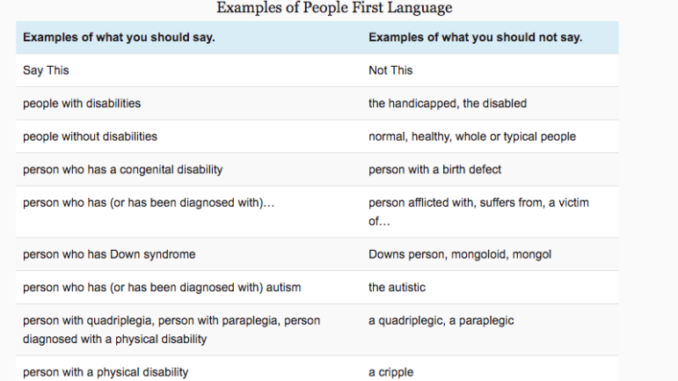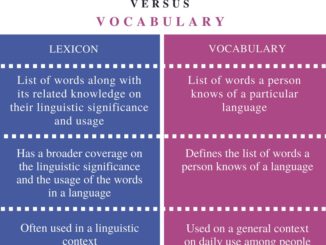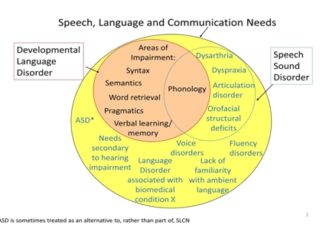
The language used when working with individuals with special needs can be very important. While the average person may not see the importance of supportive and meaningful terminology, for the family members and professionals working with these people, it is vital.
In the 1990s there was a movement called people first. The purpose was to remind everyone that individuals with special needs are people first and their disability second. For example, they were not autistic children, but children with autism. They were adults with cerebral palsy. By placing the person before their disability we saw the person as well as their issues. It made sense and great gains were made in changing the way the public viewed children and adults with special needs.
Fast forward twenty years. It appears that we have moved back to disability first. Kids who are on the spectrum are back to being autistic kids. Individuals with cognitive impairments or delays are being called retarded. All of the work put forth to promote the individual has gone to the wayside.
Parents and loved ones of these amazing people have worked diligently to illuminate their individuality. Referring to them by their disability first diminishes the person they are. When advocating for their loved one most times they are sharing their strengths: they have a great sense of humor, they love to talk about cars, they have a talent for music. These things are what are important. They are what makes the individual special. Their diagnosis is of secondary importance at most.
Many people may see this as political correctness run amok. The difference here is that it impacts the way others view those with special needs. For many, their disability is obvious. They need support to communicate. They need devices to move through their space. They need redirection to follow simple directions. The world does not need to be reminded of what challenges they face every day. It does need to be reminded of the amazing person who is trapped behind these limitations.
When speaking about individuals with special needs remember that they are people first. They are a child with Down Syndrome or an adult with autism. The person should always be the focus of the statement. The disability is only part of who they are; not the entire being. It is important that we remember this at all times. The individual and their family will thank us for it.
©R. Wellman 2011
Proudly WWW.PONIREVO.COM



